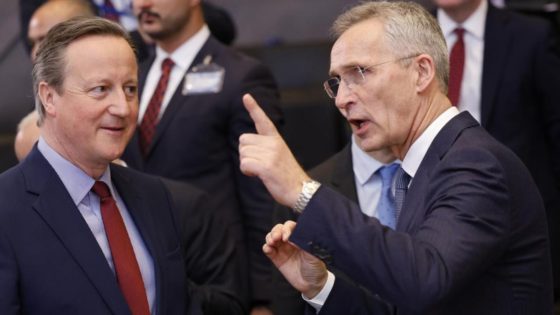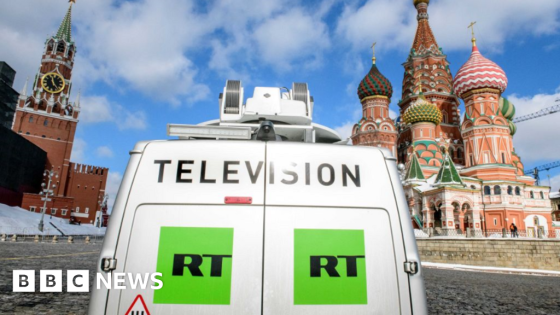NATO foreign ministers have met to discuss how to put military support for Ukraine on a long-term footing, including a proposal for a 100 billion euro ($A164 billion) five-year fund and a plan seen as a way to “Trump-proof” aid for Kyiv.
The proposals by NATO Secretary General Jens Stoltenberg would give the Western alliance a more direct role in co-ordinating the supply of arms, ammunition and equipment to Ukraine as it fights Russia’s invasion, diplomats say.
The plans will be discussed during a two-day meeting in Brussels that will celebrate the 75th anniversary of the founding of the North Atlantic Treaty Organisation and prepare for a July summit of alliance leaders in Washington.
“We need to shift the dynamics of our support,” Stoltenberg said as he arrived at the Brussels meeting on Wednesday.
“We must ensure reliable and predictable security assistance to Ukraine for the long haul so that we rely less on voluntary contributions and more on NATO commitments.
“Less on short-term offers and more on multi-year pledges.”
He declined to confirm levels of funding and said the aim was for a decision to be taken at the July summit.
Under the plans, NATO would take over some co-ordination work from a US-led ad-hoc coalition known as the Ramstein group – a move designed in part to guard against any cut in US support if Donald Trump returns to the White House, diplomats said.
Until now, NATO as an organisation has focused on non-lethal aid for Ukraine out of fear that a more direct role could trigger an escalation of tensions with Russia.
Its members have provided billions of dollars in arms on a bilateral basis.
Diplomats said there was a growing view within NATO that it was time to put military aid to Ukraine on a more sustainable footing and NATO was best placed to do that.
But they said it was unclear whether the 100 billion euro figure would be accepted or how it would be financed.
NATO decisions require consensus among its 32 members.
Latvian Foreign Minister Krisjanis Karins said it was a “very good proposal” as he arrived at the meeting, adding that the funds could be a percentage of each member’s GDP.
Polish Foreign Minister Radoslaw Sikorski said he supported Stoltenberg’s efforts and Canadian Foreign Minister Melanie Joly said she welcomed “any form of support that Ukraine can have”.
US Secretary of State Antony Blinken, who will attend the meeting, said in Paris on Tuesday that NATO was looking at measures that could serve as the “necessary bridge” to membership of the alliance for Ukraine.
NATO has stated that Ukraine cannot join while it is at war with Russia but that it will become a member at some point.
“Ukraine will become a member of NATO,” Stoltenberg said.
“It is a question of when, not if.”
The meeting comes as NATO is seeking a new leader to succeed Stoltenberg, who has been in post for almost 10 years.
Dutch Prime Minister Mark Rutte has the backing of some 90 per cent of NATO members for the job – including the US, France, Britain and Germany – according to diplomats.
But he faces opposition from Hungary – which objects to his criticism of Prime Minister Viktor Orban’s government – and a late challenge from Romanian President Klaus Iohannis.
Source Agencies



